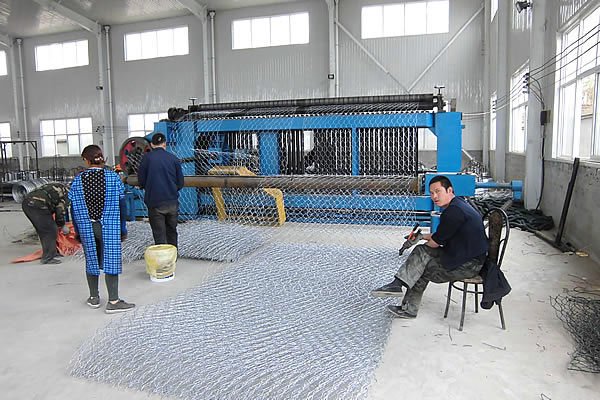 TEL:
+86-13102802206
TEL:
+86-13102802206
 Email:
fencenetting@china.com
Email:
fencenetting@china.com
 Language
Language
 TEL:
+86-13102802206
TEL:
+86-13102802206
 Email:
fencenetting@china.com
Email:
fencenetting@china.com
 Language
Language


The Significance of Soft Iron Binding Wire in Various Applications
Soft iron binding wire is a versatile and crucial material that finds extensive application across multiple industries, ranging from construction to manufacturing. Characterized by its high ductility, magnetism, and resistance to wear, soft iron binding wire has become a staple in tasks requiring strong yet flexible binding solutions.
One of the primary uses of soft iron binding wire is in the construction industry, where it serves as an essential component for tying rebar (reinforcing bars) together. The strength and flexibility of the wire allow builders to securely fasten rebar in place, ensuring structural integrity in concrete foundations, walls, and other elements. By using soft iron binding wire, construction professionals can enhance the stability of their projects while minimizing the risk of structural failure. The ease of handling and application further enhances its appeal, as workers can quickly and efficiently tie knots, saving time and labor costs.
In addition to its construction applications, soft iron binding wire is widely used in manufacturing processes. It is often employed in the production of various metal components and assemblies. The wire can be utilized to create wire mesh, cages, and frames, providing support and structure to a range of products. Its malleability allows it to be molded and shaped easily, making it ideal for custom applications. Moreover, the magnetic properties of soft iron make it suitable for use in electrical and electromagnetic devices, such as transformers and inductors, where the conduction of magnetic fields is crucial.

The agricultural sector also benefits from the practical properties of soft iron binding wire. Farmers and agricultural workers often use it for fencing, trellises, and securing crops. Its resistance to environmental factors, such as rust and corrosion, ensures that it withstands the challenges posed by outdoor conditions, providing durability and longevity in agricultural applications. As a result, soft iron binding wire plays a significant role in supporting sustainable farming practices.
Furthermore, soft iron binding wire is utilized in artistic and decorative applications. Artists and crafters appreciate its malleability and ease of use, allowing them to create intricate sculptures, crafts, and decorative items. The wire can be easily cut, twisted, and shaped to bring creative projects to life, showcasing the versatility of soft iron in artistic expression.
In summary, soft iron binding wire is an indispensable material with a multitude of applications across various industries. Its unique properties, such as ductility, magnetism, and resistance to wear, make it a preferred choice for construction, manufacturing, agriculture, and artistic endeavors. As industries continue to evolve, the demand for versatile and reliable materials like soft iron binding wire will likely remain strong, contributing to innovative solutions and durable products. Investing in high-quality soft iron binding wire can lead to enhanced efficiency, safety, and creativity in projects, thereby solidifying its status as a critical resource in contemporary practices. The future holds promising potential for this unassuming yet essential material as industries seek improved methods of construction and production.